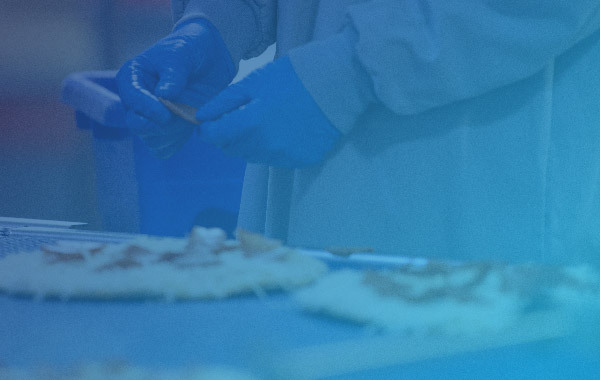SAFE FOOD: Building a Culture of Prevention and Protection in 2025
SAFE FOOD remains one of our three core focus areas. Safe people in safe facilities produce safe food — and that starts with consistent practices that prevent cross-contamination, foodborne illness, and other risks to public health. Through strong cleaning and sanitization procedures, active quality assurance, and a shared commitment to safety, we protect our team, our consumers, and our company’s reputation.
Food Safety vs. Food Defense: Protecting Public Health and Your Company’s Future
Food safety and food defense are two essential components in maintaining the integrity of a food manufacturing facility. While both prevent food adulteration, they address different types of threats:
- Food Safety prevents unintentional contamination caused by improper hygiene, handling, or storage.
- Food Defense protects against intentional acts of harm — deliberate contamination meant to damage consumer health, disrupt operations, or harm a company’s reputation.
In 2025, as the food industry faces new challenges — from evolving regulatory standards to global supply chain risks — a strong food safety and defense program remains vital to protecting both people and business continuity.
Food Safety: Preventing Unintentional Risks
Food safety protocols are designed to minimize unintentional contamination at every stage of production, from the sourcing of raw ingredients to the final packaging of finished products. These measures help prevent foodborne illnesses and ensure compliance with Good Manufacturing Practices (GMPs) and industry regulations.
Key food safety actions include:
- Adhering to strict sanitation and hygiene practices.
- Maintaining proper temperature control during storage and transport.
- Conducting regular inspections and corrective action reviews.
Food safety isn’t just about compliance — it’s about building habits that safeguard the quality and trust consumers expect from every product we make.
Food Defense: Preventing Intentional Acts of Harm
Food defense protects against deliberate, malicious actions designed to contaminate or compromise products. In today’s world, where intentional adulteration and cybersecurity threats pose real risks, effective food defense planning is crucial.
Core defense measures include:
- Controlled access to sensitive production and storage areas.
- Employee training on identifying and reporting suspicious activity.
- Security systems, surveillance, and access logs to track movement throughout facilities.
For example, limiting access to chemical storage rooms, loading docks, or ingredient preparation areas helps reduce potential vulnerabilities. Food defense isn’t just about physical barriers — it’s about vigilance, awareness, and accountability across the entire workforce.
Restricted Access: Strengthening Food Defense
Restricting access to specific areas of a facility helps prevent unauthorized personnel from tampering with products and equipment.
- Only designated employees should access zones where food is processed or stored.
- Entry points, such as ingredient storage and packaging areas, should remain secure and monitored.
- Access control systems and visitor sign-ins help track movement within the plant.
These layered security measures make it more difficult for anyone to introduce contaminants or compromise operations, thereby protecting both the integrity of the food supply and the safety of every employee.
The Consequences of a Breach
A single breach in food defense can have devastating effects:
- Illness or injury to consumers.
- Costly recalls, lawsuits, and regulatory shutdowns.
- Lasting damage to the company’s reputation and trust.
- Loss of jobs or facility closures.
Once public confidence is lost, rebuilding it can take years — and the impact extends far beyond the bottom line. That’s why protecting our food supply isn’t just a regulatory requirement; it’s a moral and economic responsibility shared by every employee.
Shared Responsibility for a Safer Future
Both food safety and food defense are critical to maintaining a strong, resilient food system. Food safety protects against mistakes. Food defense protects against malice. Together, they ensure our products remain trustworthy, our facilities remain secure, and our people remain safe.
In 2025, as we continue to strengthen our SAFE FOOD commitment, every action — from handwashing to access control — plays a part in protecting what matters most: our team, our consumers, and our future.

